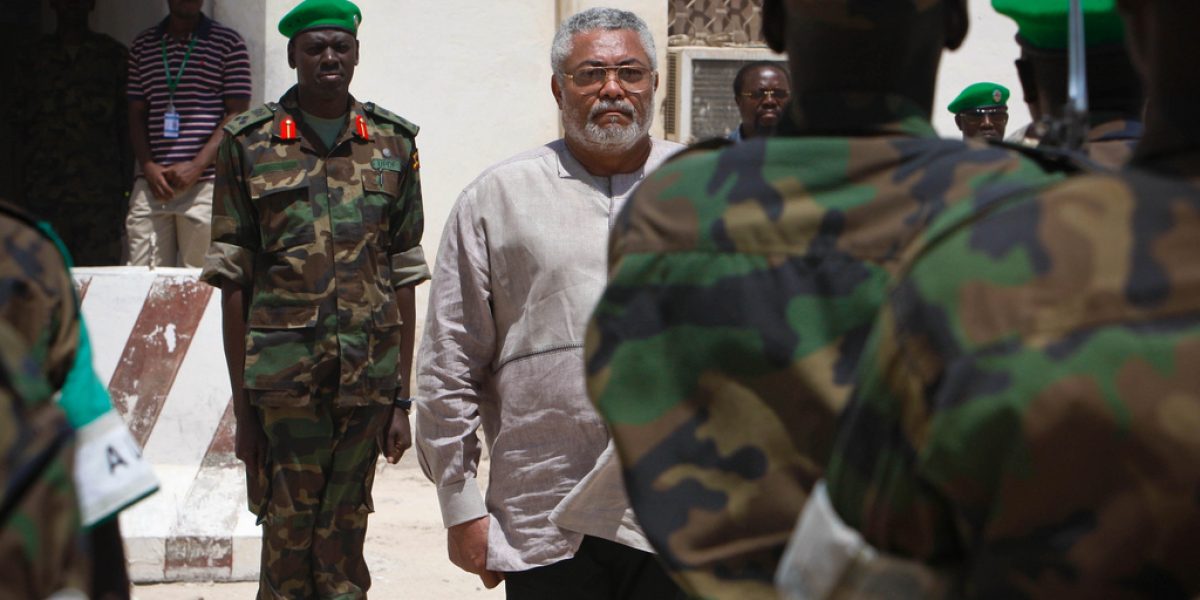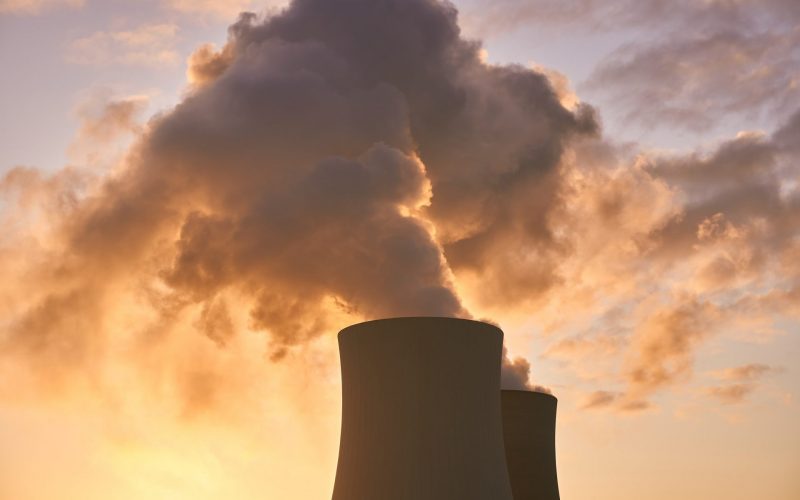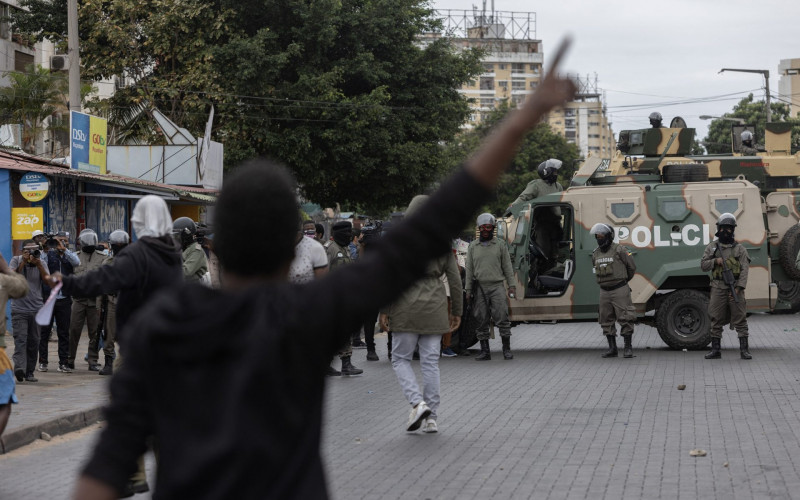AFRICA’S political history since independence has largely been characterised by a scarcity of verifiable documentation and a dearth of information on the activities of the key players in the struggle for liberation and democratic evolution.
Leaders such as Patrice Lumumba never had the opportunity to contribute to our knowledge of Africa’s political development because their lives were cut out prematurely by the anti-liberation forces of their time. The few who committed their thoughts to writing, such as President Kwame Nkrumah, did so in exile, and could hardly avoid some sense of bitterness and self-justification. It is only in recent years that some African leaders have been able to collect their thoughts after leaving office, without fear of reprisal.
The chequered political history of many of our countries has led to the loss of a great deal of archival material, which could have influenced subsequent political developments in our countries. This, in turn, has made it easy for successor-regimes to distort the immediate past to their advantage.
Now that a growing number of African countries are moving towards some sense of continuity in governance, with relatively peaceful and democratic transfer of power, it is imperative that this process be strengthened by the building of collective sources of material.
It is only when our electorates are armed with true, factual and objective information about our political past that they can make informed decisions and see through attempts at misinformation.
The history of our continent, for the better part of the 20th century, was engrossed by the struggle to move beyond colonialism and the last vestiges of racist control and arrogance.
In spite of the traumatic experiences of post-colonial Africa, political independence and relative self-determination remain the struggle’s most important achievements of Africa in the same period.
The west factor
African countries, which had hitherto been clients of a bipolar world, have had to face a new challenge: that of adopting a new set of responses to impulses coming from the West.
Autocracies have had to be quickly dismantled; frozen centralised economies are opening up, while relationships with multilateral institutions are similarly being realigned and redefined. In short, Africa has had to, as it were, reinvent itself and learn new ways of doing business with a changing world. That challenge lingers and is one of the defining characteristic of the present.
African countries will make progress, depending on the degree to which their national leadership can come to terms with and re-direct their national affairs in line with these imperatives.
It is also gratifying that in so short a time, the indications of positive change in Africa have been encouraging. New democracies are taking hold in different parts of the continent. Concurrently, existing ‘democratic’ governments that had been virtually one-party states have opened up the political space and have embraced reforms, albeit often reluctantly.
This brings us to another defining challenge, that of moving beyond mere forms and institutions of democracy as defined by Washington and Westminster to make it meaningful to the ordinary people of Africa. Meaningful partici-patory democracy must involve our people in day-to-day decision-making, as it did in most African cultures in pre-colonial times and still does to some extent in our traditional areas. Voting once every few years is just a part of what true democracy should be.
If we settle for meeting the basic criteria of democracy as prescribed by the West, we will find ourselves dealing with a façade behind which very undemocratic power is wielded to the benefit of a political elite.
Yet another defining challenge concerns how we deal with negative internal issues such as corruption and civil strife.
Whilst there has been appreciable progress towards lasting peace in Angola, the Democratic Republic of Congo, Liberia, Rwanda, Sierra Leone, Sudan, many issues still remain to be resolved, whilst in other countries seemingly at peace, including Ghana, there are unresolved areas of tension.
Whilst we are rid of the Bokassas, the Mobutu Sese Sekos, the Idi Amins and their gross corruption propped up by the West during the Cold War, and whilst many of the newer generation of African leaders believe in service to the people rather than personal gain, there is still an insidious smell of corruption at many levels.
Nobody can solve these problems for us. It is the responsibility of Africans to hold their leaders to account, and the responsibility of African governments to demonstrate that their hands are clean.
We must not be deceived by the modest signs of progress into thinking that the African rebirth is well on its way. Our economies are still overly dependent on resources and direction from the G8 and other industrialised economies. Our most important resource, our human capital, either remains ineffectively tapped at home or relocates, out of frustration, for greener pastures in the developed economies.
Our politics remains less than transparent while some of our governments are largely inefficient and regrettably very corrupt. Human rights are held in abeyance in a number of African countries in spite of the proclamation of democracy throughout the continent. Rural hunger and poverty, disease and ignorance hold many hostage and our urban areas remain unsafe and unclean.
Happily, there is increasing awareness of the injustice in the blind pursuit of profit at the expense of humanity among the younger generations of people in the industrialised countries.
The world has become increasingly interdependent, perhaps to Africa’s long-term advantage.
Africa’s relative poverty and low socio-economic status is not only a blight on the conscience of the developed world but it is a source of problems that threaten the whole of humanity. These include problems of illegal immigration into Europe, increasing cross-border crimes, outbreaks and spread of diseases such as HIV/AIDS and other pandemics as well as the growth in financial crimes driven by poverty.
The challenge on hand is squarely an African one. We cannot begin the process of piloting our countries away from these difficulties by depending solely on externally induced solutions or assistance no matter how well intentioned. Nor can we rely on blindly copying structures and institutions that were bequeathed to us.
Question assumptions
As I see it, the basis of the African re-awakening must be a rigorous reform of our economies and governments. Such reform, in order to be meaningful, must be informed by a radical change in our perceptions. We must critically question all received assumptions, overturn moribund institutions and jettison counter productive beliefs, be they alien or indigenous.
This brings us to a fundamental question: Between economic reform and political democracy which should come first? That is one question that begs for an answer as African countries are made to fall over each other in the scramble to impress creditors by embracing westernised formal democracy.
What do we mean by ‘reform’? I shall take it to mean amending and improving existing institutions and policies to better perform their functions in furtherance of the sustainable well-being of the people, and where necessary, thinking ‘outside the box’ of external prescriptions.
Too often on our continent, ‘reform’ means demolishing useful indigenous culture, jettisoning long-term objectives, removing competent administrators, technocrats, board members for no other reason than that they are perceived as connected to a previous regime.
This is the destructive face of reform, which has abruptly interrupted long-term programmes designed to benefit future generations.
To me, ‘reform’ should mean building upon what exists, but with an open mind to reshaping it where it is necessary to refocus and to realign.
Reform means change. Change is simply replacing one set of conditions by another. It may be positive or negative. It may be motivated by nothing more than boredom with the status quo or a genuine response to an intolerable situation.
Change in itself is neither good nor bad, but any change carries a cost. Since change disrupts the status quo, it is necessary to weigh the cost of reorganisation after disruption, and the consequences of interrupted programmes and policies. Obviously, it is only when change is for the better that these costs can be justified.
Democratic change could also mean change brought about by democratic means. Such change is not necessarily good even if the process by which it is brought about is acceptable. For example, elections may be held and adjudged free and fair by the most objective of observers and yet bring about a change which is to the detriment of the generality of the people.
In countries such as ours, where many people still exist on the edge of desperate poverty, and where there is a large deficit in education, it is easy to promise the electorate the moon if only they will democratically endorse change. It is also easy to temporarily corrupt the electoral process.
Those countries which have appointed themselves our ‘tutors’ in democracy (whilst undemocratically threatening us with withdrawal of aid if we do not swallow their forms of democracy whole) will say that such a ‘democratic mistake’ does not matter because at the end of the term of office of that government, it can be democratically voted out. Meanwhile, the crimes and human rights abuses, killings and tortures are shamefully treated with the case of the three monkeys – see no evil, hear no evil, speak no evil!
The good and bad of democracy
What those prosperous countries fail to acknowledge is that for people living at the edge of existence as we do, four years of misery is a long time. When people become desperate, social norms and order may be subjected to immense stress, leading to the destruction of the fabric of society – especially when the judiciary becomes subservient to the executive.
Change brought about by democratic processes, or at least the forms of democratic processes which bear the seal of approval of the present world order, can therefore be either good or bad, depending to a large extent on how well informed the electorate is and the ability of the average voter to make reasoned choices.
I would, in the African context, prefer to define democratic reform as change which enhances democracy in the sense that it provides broader opportunities for more citizens to be involved in the process of governance.
What I would call participatory democracy goes beyond the periodic right to vote. It goes beyond lining the electorate up behind political parties in order to determine winners and losers. It means getting ordinary men and women involved in the day-to-day decision-making of grassroots governance in their communities to the extent that they feel that their actions can influence events.
I have known from personal experience, both when I was at the bottom and when I became a Head of State, that if we could decentralise some of the burdens and the responsibilities carried by the central government and share these responsibilities with the people by empowering them with some of the economic and political authority that a growing percentage of our citizens would become real participants in governance, under-standing the hard realities of development and progress and sharing in successes and difficulties. Both the governed and governors, therefore, end up taking responsibility for the right and wrong policies.
This means encouraging an active sense of ownership and pride rather than a passive feeling of helpless acceptance of whatever is decided by the government. It means nurturing a spirit of positive defiance, a readiness to confront that which is clearly wrong and which undermines the building of a just society.
I have sometimes been accused of being against democracy because I have said that the people’s involvement in governance must go beyond the ballot-box, and because I have expressed concern about the tendency of multi-party politics, especially on our continent, to become antagonistic and divisive, to foster a cynical kind of expediency which owes more to prospects of the next election than it does to the long-term interest of the people, and makes politics too dependent upon which group has more money.
When I speak about positive defiance, it may seem that I am stoking flames of civil disobedience. No. I mean a readiness to confront that which is clearly wrong and which undermines the building of a just society. If our people lose the courage to confront what is wrong then we become collaborators.
Let me reiterate quite clearly that I am a passionate believer in democracy. This is why I am more concerned about the essence of democracy than about the outward forms of democracy. We must infuse those forms with the spirit of the people. They must own democracy; they must feel a part of it. That is the only way democracy can thrive on our soil.
Let me also say that I believe that my concerns about partisan politics are valid. This does not mean, however that I am saying that the multi-party system must be abandoned. It means that all of us, the electorate and the political parties – whether in power or in opposition – must endeavour with all sincerity and strength of will to avoid the latent negative tendencies which can so easily distort multi-party democracy, and turn it into a mere cloak of political respectability to hide the misuse of money, power and influence to benefit a political group to the detriment of the long-term interests of society as a whole and of the disadvantaged in particular.
Birth pains of independence
In Africa, independence from the colonialists was gained without the necessary empowerment of the majority yet they were required to adopt the democratic norms of the metropolitan countries a day after the colonialist flag was lowered. The masses of Africa were thus thrown into political independence and Western democracy at the same time. It was this situation that produced the political convulsions of the immediate post-colonial era.
Today again, the logic of world history has led to the projection of Western-style multi-party democracy as a universal model. Every country is now to be measured in terms of whether their political system approximates the classical Western model. More dangerously, adoption of this brand of democracy has suddenly become the criterion for either debt forgiveness or new grants or loans. Very little effort is being made by the champions of this universal democracy to accelerate the economic development of those parts of the world that have obvious difficulty in embracing this foreign type of democracy. Also, very little effort is being made to understand the cultural and historical peculiarities of these diverse societies.
To my mind, the very essentials of democracy are in themselves desirable requirements for every civilised society. These include respect for the basic freedoms and responsibilities, the rule of law, due process, orderly succession. I, however, refuse to accept the claim that there is only one model of democracy that ought to command universal application, as, indeed, no one model has as yet been known to be above blemish. What is called for is a creative adaptation of the basic principles of democracy to the local peculiarities of different societies. The cultural and historical diversity of Africa dictates this imperative. Perhaps what we need to be speaking about is ‘Appropriate Democracy’.
In South Africa, for instance, centuries of white rule dictated a different constitution from what we adopted in Ghana, where racial discrimination has not been as destructive an issue in our history, outside the slave trade.
It is possible to see how some conflicts and tension in some parts of Africa are traceable to the rigid application of divergent interpretations of democracy to heterogeneous societies.
Most African economies are still caught in a web of contradictions, with a constant crisis of expectations between what the West expects as the natural outcome of an election in Africa and what actually happens. This is one reason why foreign observers of elections in Africa’s new democracies always come out perplexed.
A political system predicated on poverty cannot yield fair results or engender fair play, especially when a sitting government makes it its preoccupation to subordinate the spirit and corrupt the moral fibre of a people.
Homegrown solutions
In today’s troubled world, the concerns of Africa have often been marginalised. But we Africans, who daily experience those concerns, have no excuse to relent in the struggle to empower our peoples to harness the rich human, economic and natural resources of our continent to provide social justice and self-development in peace and dignity. Thankfully, a growing concern for Africa in some international circles has led to a movement towards some relief of the inequities which have held us back.
But the models of democracy which are held up before us for admiration and emulation, and by whose yardstick we are judged according to how closely we copy them, have themselves become rather threadbare.
It is no secret that these models are themselves riddled with unethical and self-serving practices and the influence of money, and that the electorates of these ‘model democracies’ have become cynical and apathetic about their political systems, if not outright antagonistic.
Let us therefore fashion our own path, one which will foster true, meaningful and participatory democracy in the nations of Africa. And let us have the courage to speak out in the world about global wrongs instead of seeking to please major powers for the sake of a few aid dollars.
But to do this, we and nobody else, must answer the question of why, for example, we cannot address the problems of bureaucratic inefficiency and apathy in our own countries, of pervasive corruption, of sudden eruptions of ethnic or religious violence, of the erosion of moral values, of mindless lawlessness. We debate and discuss, exhort and preach. But we do not get to the roots of the problems and so we do not act appropriately.
If meaningful democracy is to become a force for real change in our continent, then we must empower our people to make it their own. To impose ‘democracy’ from above is a contradiction of terms. It must be a process whereby ordinary men and women voluntarily take on the responsibility to speak and act for the good of the broader community. Where this is ignored or suppressed, resentments will build and will sooner or later lead to another cycle of disruption. Let us once again learn from history, and from the world around us today.
I believe that the real roots of democracy in Africa derive from the best aspects of our traditional systems of governance. Whilst we reject the outdated and negative aspects, such as superstition, attitudes and prejudices towards women, family planning, we need to build upon the positive. The traditional spirit of community, of building broad consensus, of social cohesion, of the right of the humblest citizen to voice his or her concerns before the council of elders – all these and more can help us fashion a participatory democracy which is rooted in our own cultures, rather than modelled on the historical experiences of other continents. I am not advocating a divergence from the basic principles of internationally accepted democracy, but rather a marriage of ideas which will produce systems which our people perceive as their own.







